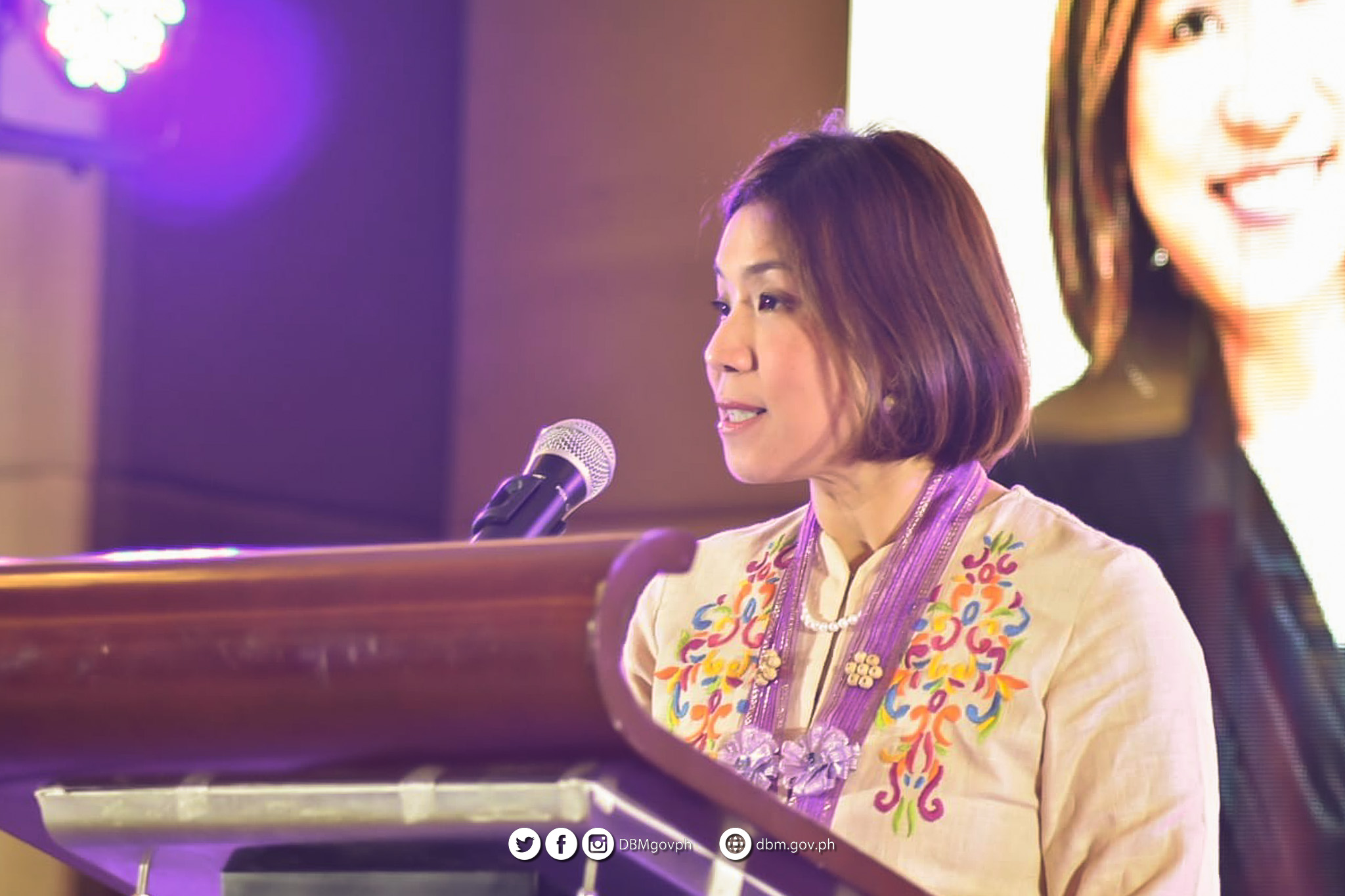
DBM Regional Directors—Dir. Lenin Bernales of Regional Office VI; Dir. Maria Liane Gayomali of Regional Office VII; and Dir. Imelda Laceras of Regional Office VIII;
Philippine League of Local Budget Officers (PHILLBO) Visayas Inc. President and Municipal Budget Officer of Dauis, Bohol, Mr. Samuel Penales;
PHILLBO Inc. President and Capiz Provincial Budget Officer Mr. G. Antonio Arbis;
Officers and members of PHILLBO Inc.; the Association of Local Budget Officers (ALBO) VI, Inc.; the Association of Local Budget Officers in Central Visayas (ALBOCV) Inc.; and Region VIII Association of Local Budget Officers (REALBO) Inc.;
Resource speakers; local budget officers, public financial managers, guests, and participants;
Thank you for inviting me today and congratulations on the success of the PHILLBO Visayas Area Conference!
The theme of this event, “Local Budget Officers: Transformational Leaders for a More Inclusive and Sustainable Public Financial Management” is aligned with the theme of our Proposed National Budget for 2023—”Agenda for Prosperity: Economic Transformation Towards Inclusivity and Sustainability.”
As the Administration’s first national budget moves closer to approval, we are also moving forward in addressing the immediate issues confronting the Filipino people through the national budget. This is encapsulated under our 8-Point Socioeconomic Agenda and anchored on these pillars:
- Strengthening the purchasing power of Filipinos;
- Reducing vulnerability and mitigating scarring from the COVID-19 pandemic;
- Ensuring sound macroeconomic fundamentals; and finally,
- Supporting local governments.
As I’ve mentioned in the 25th Annual Convention Seminar of PHILLBO Inc., our economic transformation agenda will not be truly inclusive without our local governments.
In the same manner, our pursuit of bureaucratic efficiency and sound fiscal management would be impossible without our local budget officers and public financial managers who all play a crucial role in ushering LGUs toward a more open, sound, and strong PFM.
So thank you, PHILLBO Visayas, for collaborating with the Department of Budget and Management and remaining steadfast in your commitment to capacitate and equip our local budget officers not only with technical knowledge on local budgeting processes, but also with regional vision sharing, collaboration techniques, growth mindset, and of course, transformational leadership competencies.
Rest assured that the DBM is always ready to assist you, especially as we move towards full devolution which will be discussed in this conference by Dir. John Aries Macaspac from our Systems and Productivity Improvement Bureau.
To facilitate this transition, our proposed budget next year provides allocations to empower LGUs in delivering the services that have been devolved to them including the Php 28.9 billion Local Government Support Fund (LGSF), on top of the Php 820.3 billion indicative just share of the LGUs from the 2023 national tax collections.
In addition to full devolution, the government has introduced a range of budget process reforms aimed at strengthening public financial management and as part of our commitment to instill fiscal discipline or spending within our means; allocative efficiency or spending on the right priorities; operational efficiency or spending with value-for-money; and spending with transparency and participation.
And our gathering today reflects these commitments and entails empowering citizens, communities, LGUs, and other stakeholders through greater transparency, accountability, and participation in the PFM process.
Among our priority budget reforms are the:
- Cash Budgeting System (CBS) which aims to promote fiscal discipline and improved operational planning and execution of government programs, activities, and projects (PAPs); and the
- Budget and Treasury Management System (BTMS) which will facilitate the generation of vital information and real-time tracking of government financial transactions.
Meanwhile, another reform that I would like to highlight is aimed at inculcating transparency and public participation—the Philippine Open Government Partnership or PH OGP. This provides an avenue for genuine citizen participation in government processes and a platform for collaboration between champions and movers in government alongside active non-government actors.
For the past 10 years, we have worked hard towards energizing civic space, opening up public institutions, and strengthening digital governance.
As Chair of the PH-OGP Steering Committee, the DBM is committed to continuing the work towards an Open Government in the next decade and beyond.
Given these, I would like to emphasize the importance of institutionalizing PFM in meeting our socioeconomic development objectives under our MTFF or Medium-Term Fiscal Framework which aims to achieve:
- —we are on track given the 7.6 % real GDP growth in the third quarter of this year
- 9% or single digit poverty rate by 2028
- 3% National Government deficit to GDP ratio by 2028; and
- less than 60% National Government debt-to-GDP ratio by
These headline goals may sound like a very tall order, but if we all work together guided by our mandate to ensure the equitable, prudent, transparent, and accountable allocation and use of public funds, we can move closer and closer to achieving our Agenda for Prosperity that will be felt by every individual, family, and entity in the country.
Thankfully, we have our public financial managers including our local budget officers who are not just transactional practitioners. You are all transformational leaders that embody the PFM core values of accountability, transparency, integrity, and fiscal responsibility. As such, you are our trusted agents in the realization of our vision of economic transformation that is inclusive to all Filipinos and is sustainable for future generations.
Thank you again and congratulations!
Assalamu Alaikum.

